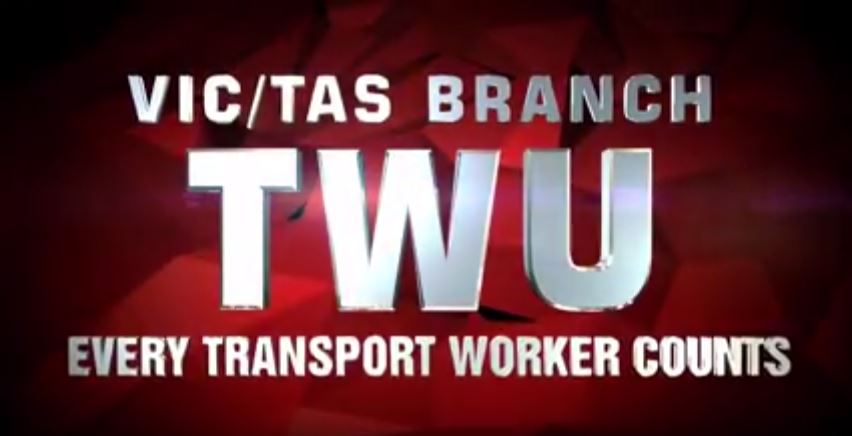NEW TWU-COMMISSIONED REPORT SHOWS $100 BILLION LOSS TO RETIREMENT SAVINGS OVER SLASHED WAGES
TWU (Vic/Tas Branch) Secretary John Berger said the attack on wages has chronic long-term effects on retirement savings.
“The report found that, throughout the economy, employees stand to lose $100 billion in retirement savings because of wage theft, wage freezes, reduced penalty rates and cancelled enterprise agreements,” John said.
The Consequences of Wage Suppression for Australia’s Superannuation System quantifies for the first time how wage cuts today are slashing retirement incomes of the future, by modelling the impact of employer wage suppression on long-run superannuation contributions and retirement incomes.
The report references high-profile cases of employers attacking wages, such as the Qantas and public sector pay freezes, below award payments by Aerocare, the cancelling of enterprise agreements by Streets Ice Cream, Griffin Coal, Aurizon and Murdoch University, and wage theft scandals at Dominos, 7-Eleven and Caltex.
TWU National Secretary Tony Sheldon said that airport workers were taking a stand against the race to the bottom, which sees families suffer because of casualization, forced part-time hours and low rates.
“Airlines and airports at the top of the aviation supply chain are profiting from this exploitation. Aerocare is leading the charge on this but it is not the only company in the dock. Slashed wages are affecting a quarter of the workforce – this impacts on people day to day and also affects their retirement,” he said.
The report findings build a powerful case for superannuation funds to reconsider investment in companies that slash workers’ wages. Such wage suppression ultimately reduces the overall pool of retirement savings and drives weaker retirement outcomes for working Australians.
The report finds:
-
Around 3 million people or a quarter of the workforce have experienced some form of wage suppression and will stand to lose out in their retirement savings because of lower superannuation payments compounded over time
-
There will be a black hole of up to $37 billion (in real 2017 dollars) for the Government through lost taxes on lower superannuation contributions and the consequent higher Age Pension payouts.
-
In the worst cases, where employers cancel enterprise agreements and force employees onto the minimum award, superannuation savings can be reduced by as much as $270,000 by the time an individual retires.
-
In cases where employees are illegally underpaid, retirement savings can be reduced by over $50,000.
-
Where enterprise agreements allow for below-award payments, retirement savings can suffer by over $40,000.
-
When employers enforce even a temporary wage freeze, retirement savings can be reduced by over $30,000 over an individuals’ retirement period.
“When working people have their wages slashed or stolen this affects their retirement savings and everyone loses – including the Government,” said Sheldon.
“Super funds and the Future Fund are investing in companies that engage in a race to the bottom on lower wages and conditions. This is ultimately harming the retirement incomes of the very people they are supposed to support. The Superannuation Investment Act’s sole purpose test is clear on the obligations of super funds: for the ‘provision of benefits on or after a member’s retirement’. The Federal Government is standing by and allowing this to happen, even supporting companies which rip their workers off,” he said.
“The best superannuation investments are in companies that are growing our economy, investing in people and thinking for the longer term. Research by Macquarie Bank*** shows that employee-friendly companies outperform hostile employers by 6.6 per cent annually.
“If a company is boasting of a sharply lower wage bill, super fund directors need to see it as a red flag, not a green light.
“In the weeks and months ahead, our Union will work to put environmental and social governance at the centre of the debate about investment behaviour. This is not only the right thing to do, it also happens to be the smartest investment approach.”

